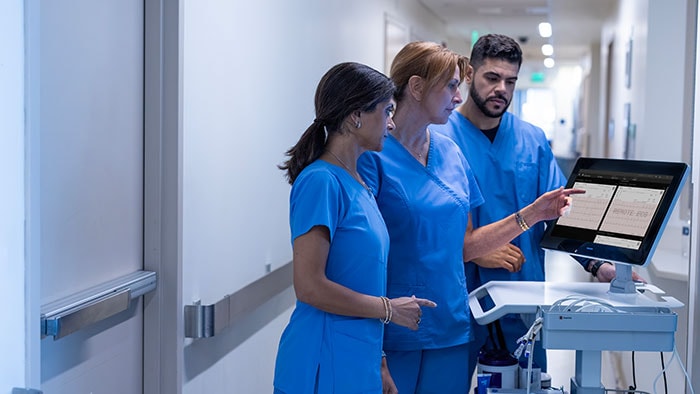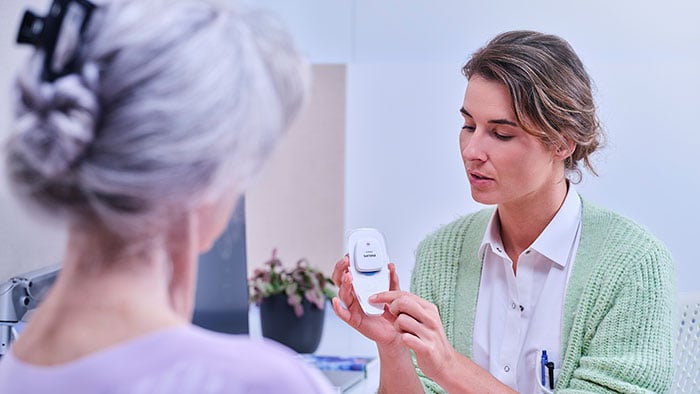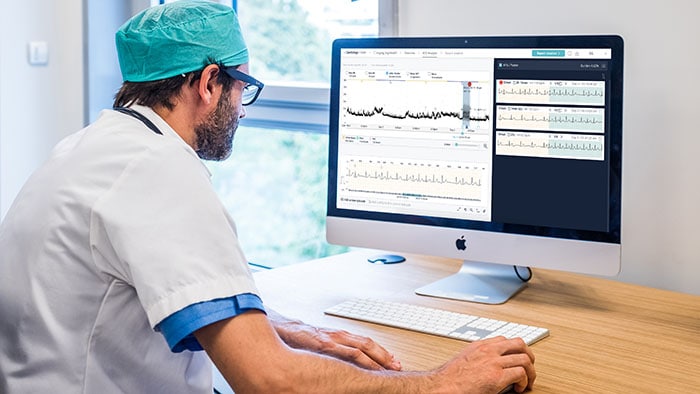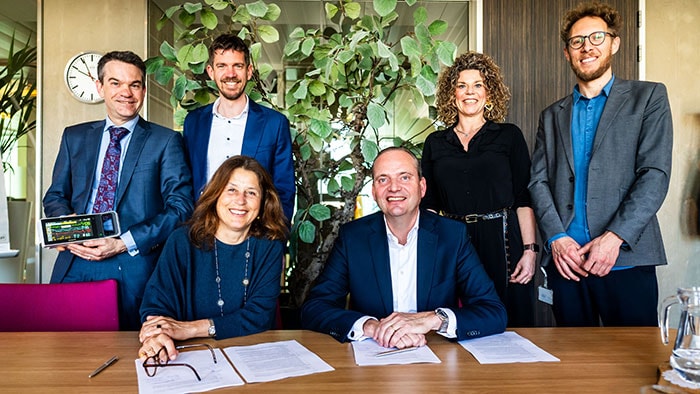Philips aims to transform diagnostic cardiology with introduction of new Cardiac Workstation
Launching in EMEA, Philips Cardiac Workstation uses sophisticated algorithms to speed collection and processing of ECG data, helping streamline care and prioritize at-risk patients
Jun 11, 2024 | 3 minute read
Amsterdam, the Netherlands – Royal Philips (NYSE: PHG, AEX: PHIA) a global leader in health technology, has introduced Cardiac Workstation, a groundbreaking new cardiac care platform designed to accelerate clinical decision-making and care for cardiology patients, in Europe, Middle East and Africa [1]. The Cardiac Workstation uses advanced algorithms to access, analyze, and manage electrocardiograph (ECG) data either remotely or at the point of care. This new technology builds on the cardiograph of the past to help improve diagnostic cardiology by streamlining data collection and reducing administrative workload – allowing care teams to spend more time on direct patient care.
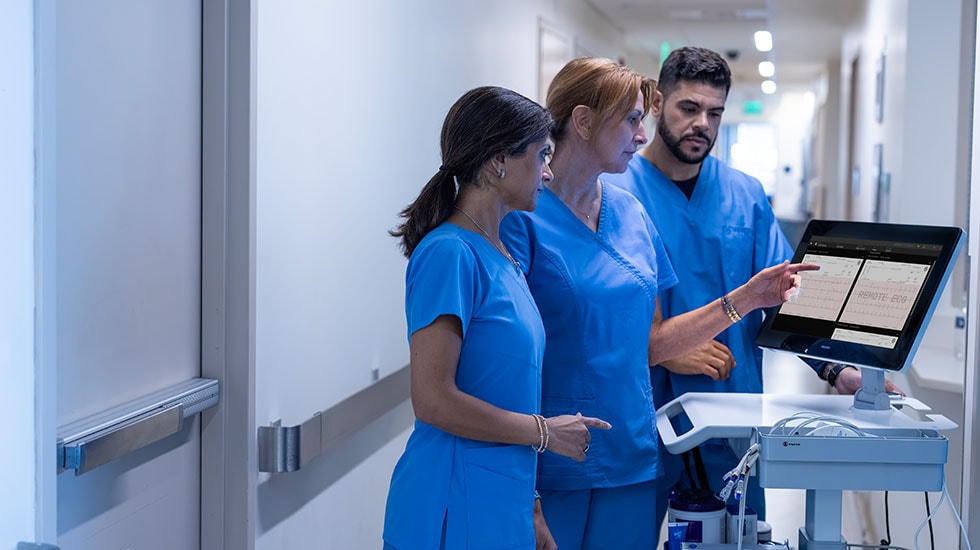
“A common theme I hear from care providers and hospital administrators is that they seek ways to alleviate their care teams’ workload without sacrificing the quality of patient care. To achieve that, they need access to the right information at the right time, wherever their point of decision may be,” said Stefano Folli, Business Leader, Ambulatory Monitoring & Diagnostics, Philips. “That’s the beauty of Philips Cardiac Workstation. It helps streamline workflow using advanced algorithms to access and analyze ECG from anywhere, paving the way to more efficient and effective patient care by enabling clinicians to quickly identify and prioritize the most at-risk patients.”
That’s the beauty of Philips Cardiac Workstation. It helps streamline workflow using advanced algorithms to access and analyze ECG from anywhere, paving the way to more efficient and effective patient care by enabling clinicians to quickly identify and prioritize the most at-risk patients.
Heart disease remains the leading cause of death globally [2]. Challenges and costs of managing cardiac conditions continue to grow while staff shortages, retention challenges, and expanded training requirements remain imminent. Administrators and clinicians face increasing pressure to efficiently care for this growing population of cardiac patients across a variety of care settings, which requires an end-to-end, broader ecosystem approach. The Cardiac Workstation helps to address these challenges by: Philips’ flexible diagnostic, screening and enterprise ECG management solutions advance a new standard of cardiac care, giving healthcare organizations the power to deliver better diagnostics by enabling intervention and treatment in the right setting, at the right time. When leveraging the full strength of the Philips ECG portfolio, care providers can strategically manage the patient population through new, accessible care models informed by healthcare data and actionable insights.
Sources [1] Not available in all markets. Pending 510(k). Not available for sale in the U.S.A.
[2] World health statistics 2024: monitoring health for the SDGs, Sustainable Development Goals. World Health Organization. 2024.
